Congratulations to our successful physics major graduate students!
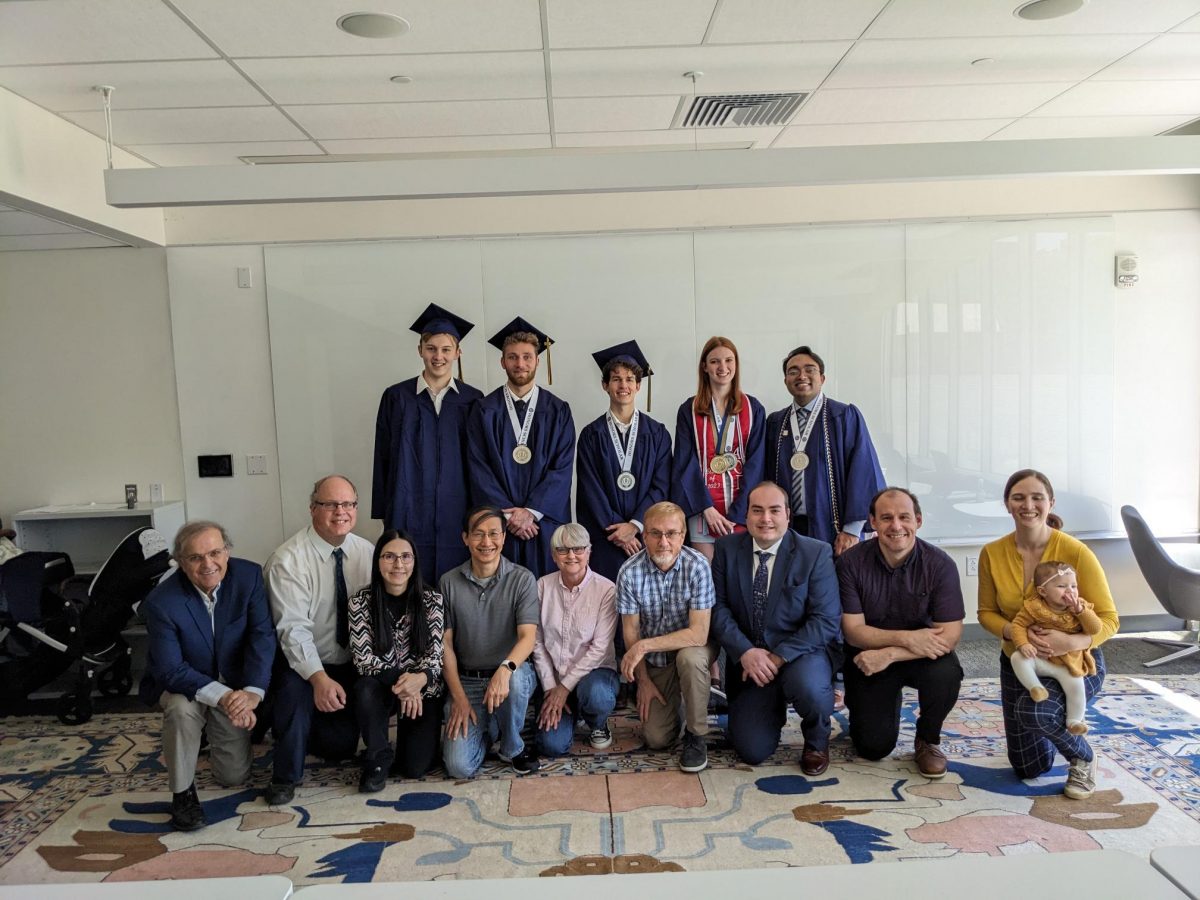
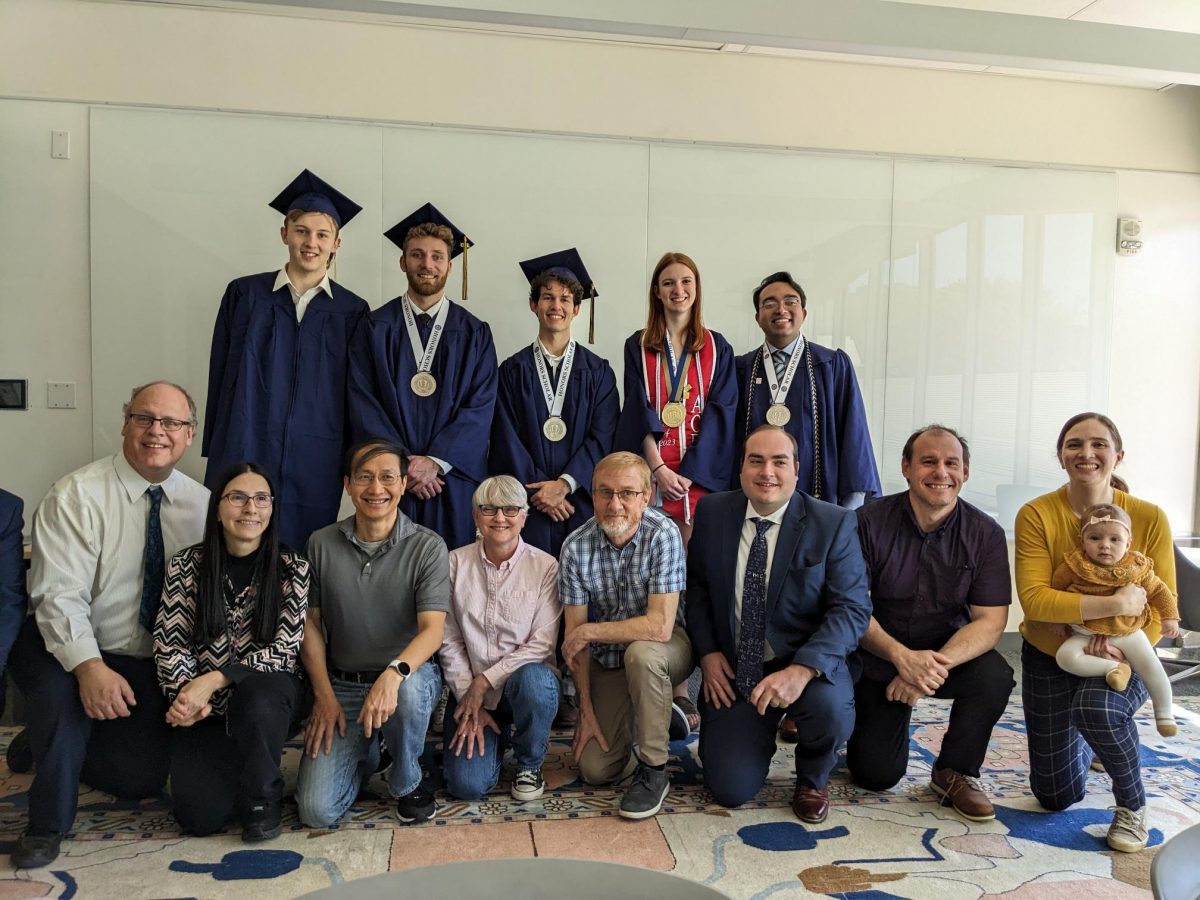
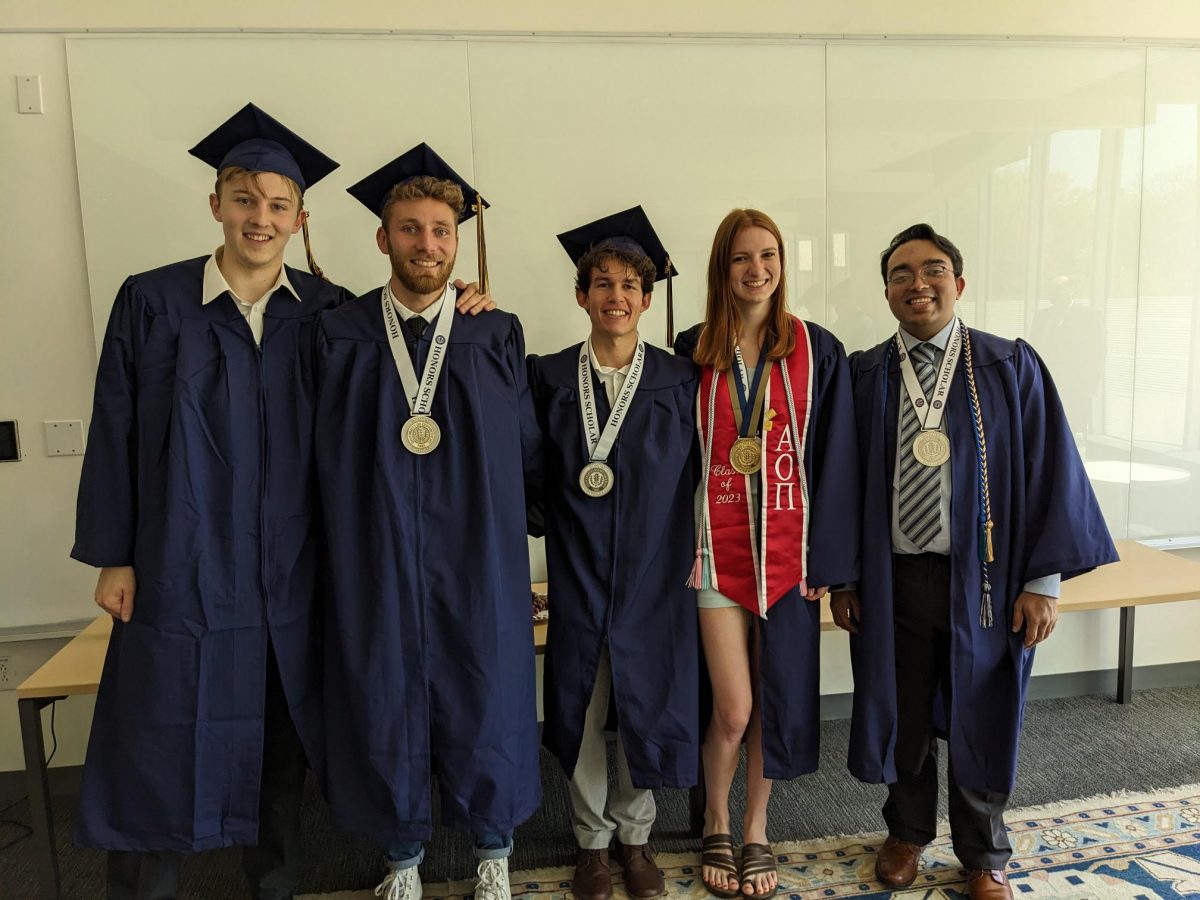
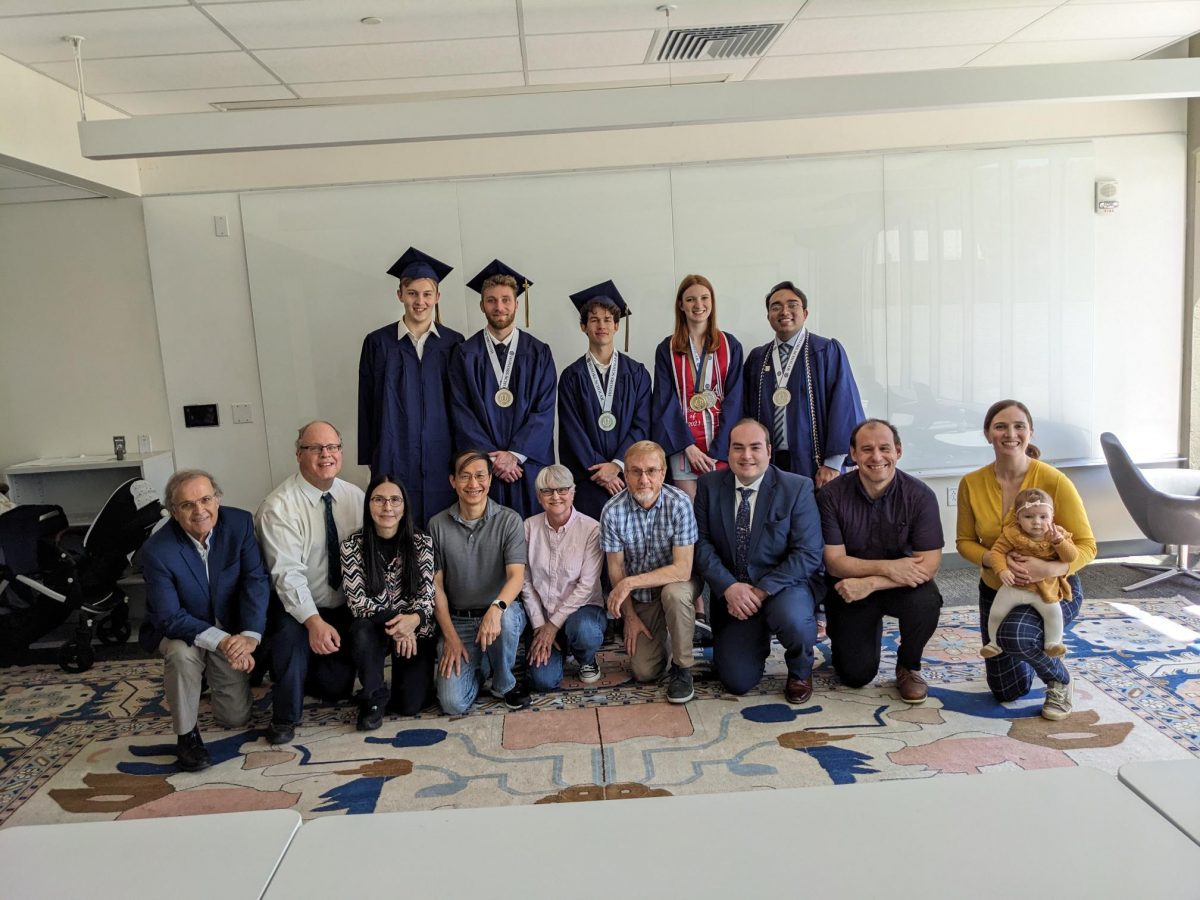
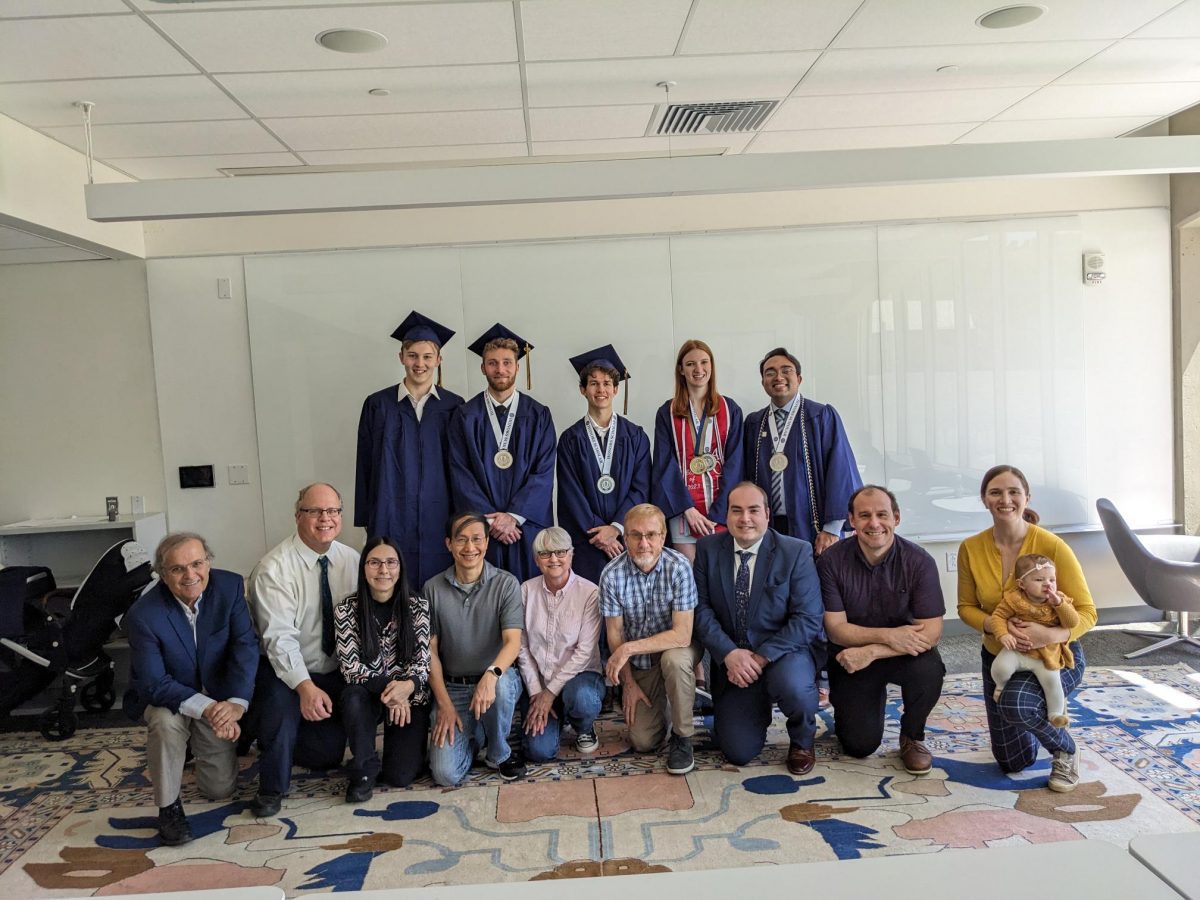
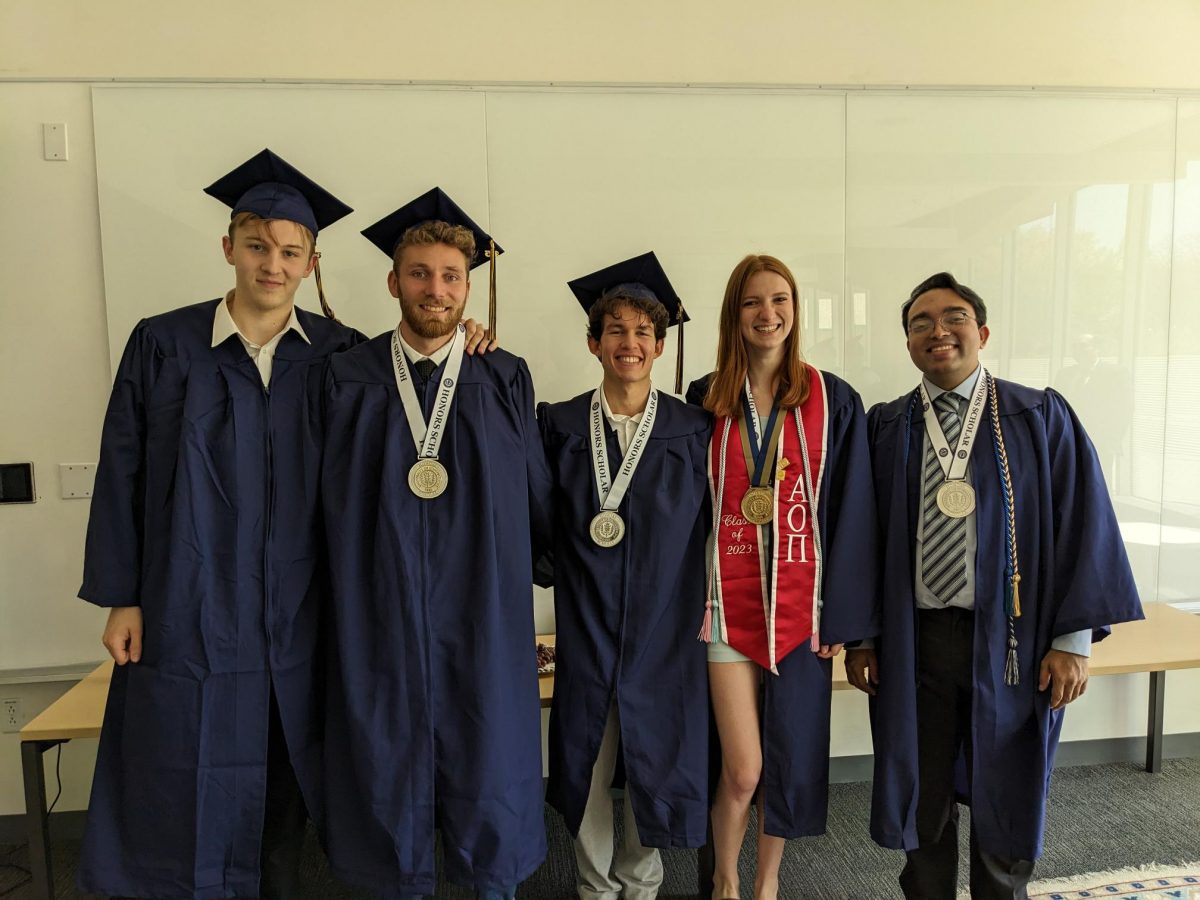
Congratulations to our successful physics major graduate students!






The Department of Physics is hosting UConn-NSF summer school on Parton Saturation and Electron Ion Collider (EIC). The School will take place in Storrs, from August 1 to August 10, 2023. The school chair is Professor Alex Kovner. The school website can be found at https://www.phys.uconn.edu/Conferences/saturation-eic/.
The Electron-Ion Collider is the next big experiment in high-energy nuclear physics. It is going to address a plethora of questions about the structure of protons and nuclei. One of the main exciting phenomena that it is intended to clarify is the manifestations of parton saturation. This has been predicted to occur in hadrons at high energy as well as in nuclei at lower energies. Although tantalizing hints of saturating behavior have been observed at Relativistic Heavy Ion Collider (RHIC) in Brookhaven National Lab and the Large Hadron Collider (LHC) at CERN, no cut-and-dry experimental case has been made for it yet. We hope that the experiments on nuclei at EIC will provide a convincing case for saturation. Another important aspect of EIC physics is scattering on polarized proton beams, which should improve our understanding of the so-called “proton spin crisis”.
The school is intended to graduate students and postdocs who want to extend their physics horizons or plan to pursue research in this or related areas. A preliminary list of lecturers at the school includes A. Mueller (Columbia), O.Hen (MIT), N. Armesto (Santiago de Campostela), A. Dumitru (CUNY, Baruch College), Yu. Kovchegov (Ohio State), L. Jin (UConn), V. Skokov (North Carolina State), B. Schenke (BNL). The schedule of lectures is available on the school website at https://www.phys.uconn.edu/Conferences/saturation-eic/
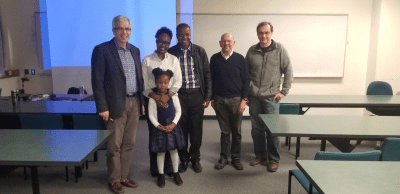
Jeff Schweitzer passed away unexpectedly last year on May 31, 2022 in his home in Ridgefield, CT. Jeff was a faculty member in the physics department for 25 years (1997-2022). Jeff earned his B.S. in Physics from the Carnegie Institute of Technology (1967), and his M.S. (1969) and Ph.D. (1972) in physics from the Purdue University conducting research in low-energy nuclear physics. After his postdoctoral research at the California Institute of Technology (1972–1974) he worked as scientific advisor at Schlumberger-Doll Research (1974–1996) where he employed his expertise in nuclear experimental techniques to applications in geology and developed several patents. Jeff served for 35 years on the editorial boards of the Journal of Nuclear Geophysics (1987-1993) and Applied Isotopes and Radiation (1993-2022). A skilled nuclear experimental physicist, Jeff applied his expertise to a wide variety of fields: from fundamental experimental nuclear physics, to astrophysics, to studies of the nanoscale kinetics in cement chemistry, to instrumentation development with applications in medical physics, forensic science, and planetary mission satellites and landers.
Jeff taught at the Waterbury campus for several years, and was a devoted mentor for his students. At UConn, he was the PhD advisor for Nada Jevtic (Phd 2003) who is now faculty at the Bloomsburg University, Tim Spillane (PhD 2008) who works now as data scientist at Hiya Inc, and James Zickefoose (PhD 2011) who is now Senior Research Scientist at Mirion Technologies, Inc. in Meriden, CT. Jeff was the mentor and co-advisor for many more PhD students including Fridah Mokaya who was Jeff’s most recent advisee. Jeff also mentored junior UConn faculty including Howard Winston and Peter Schweitzer (not related to Jeff despite the same last name).
Howard Winston recalls that Jeff went out of his way to help him during his early days at UConn. He was extraordinarily generous with his time explaining his teaching philosophy and sharing course materials. While doing so, Jeff was never overly didactic. He enjoyed talking about areas where his approaches could be customized or improved. Jeff loved to keep in touch to see how things were going. In common with others, Howard misses his warm smile and sage advice.
Fridah Mokaya recalls: “I will forever treasure this memory as it is a constant reminder of Jeff’s dedication as an advisor and mentor. Jeff greatly influenced the career path I took, I remember when I was not certain of what to do or which path to take post graduation, his words of wisdom and guidance enabled me Identify my strength and passion. He was not only an advisor and mentor but also a great friend, who would constantly call, text, email and visit to check on how everything was progressing. I will greatly miss his advice and words of wisdom.” The picture taken after Fridah’s PhD defense shows Jeff Schweitzer (second from the right) together with Fridah, her husband and daughter (middle), Richard Jones (left, main advisor) and Peter Schweitzer (right, associate advisor).
More information about Jeff can be found in the news article of the Institute of Materials Science, in Jeff’s obituary and in the article in the journal Applied Radiation and Isotopes. Many of Jeff’s articles and scientific contributions can be found on the Research Gate website.